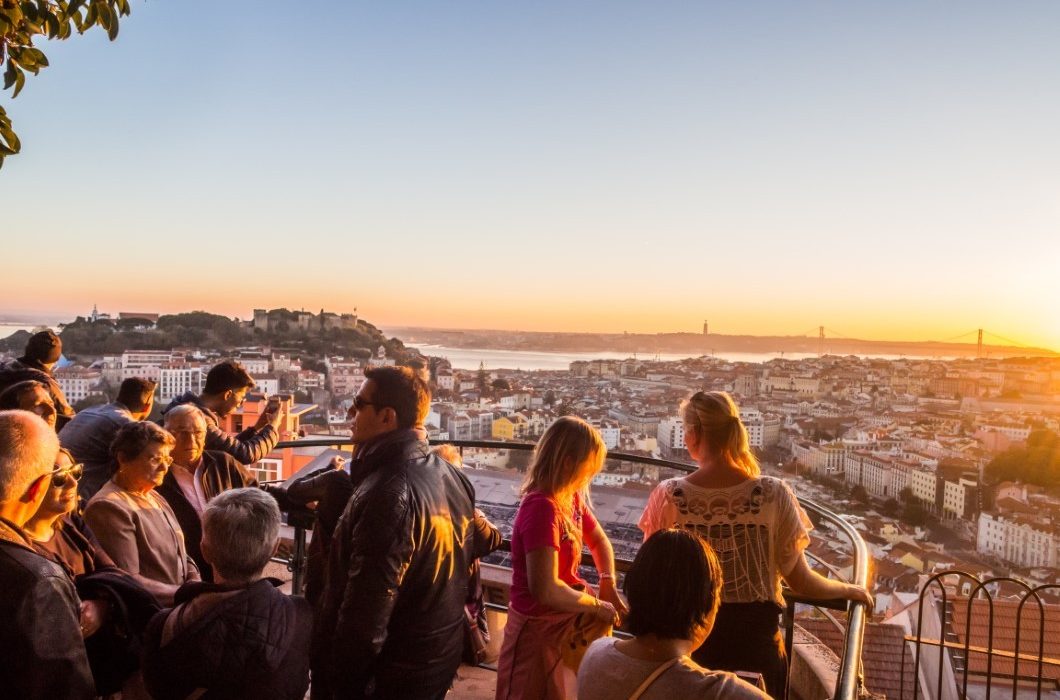
You might also like:
Real estate prices in Lisbon have risen by almost 20% in one year. The evictions of inhabitants followed one after the other. Mass tourism is one of the causes.
There are countless photos raining down on Instagram, showing an acquaintance joyfully installed on the terrace of a Portuguese café. It seems that everyone has given themselves the word: to make a successful city trip, you have to go through Lisbon. Is the country suffering the same fate as Venice? According to the United Nations World Tourism Organization, Portugal welcomed 6.8 million foreign tourists in 2010. By 2016, this figure had risen to 18.2 million, an increase of 168 per cent. Overall, only Japan experienced a more significant increase in visitors this decade.
To support these figures, the Portuguese Minister of Economy, Manuel Caldeira Cabral, said that tourism receipts had increased by 17% in 2017 and 14% in 2018. It is hard to imagine that before 2013, in Lisbon, one building in three was empty.
As a reward for this success, the locals are paying a very high price for tourism. It is simple, the inhabitants of Porto and Lisbon can no longer stand it, strangled by the increase in the price of living. Boosted by very cheap flights and thousands of short-term Airbnb-type accommodation, mass tourism has driven housing prices up by 20%. Salaries, on the other hand, do not keep pace with this increase. As a result, thousands of residents have to leave their homes because they cannot afford the rents. Let us take a striking example: in Lisbon, there are now nine tourists for every resident of the city. In Porto, there are eight tourists per inhabitant; in Albufeira, in the Algarve, there are 39 tourists per inhabitant. In comparison, the same ratio is about four to one in London and five to one in Barcelona. To house all these people, we need apartments, which do not benefit the locals. From 7,500 Airbnb in Lisbon in 2015, they rose to 12,700 in 2018, an increase of almost 70% in three short years.
While beneficial to the country’s overall economy, mass tourism poses structural problems. Rapid growth means overcrowding in large cities, especially in the heart of major attractions. As a result, tensions are growing between the inhabitants of the cities concerned by this mass tourism and visitors from destinations such as Barcelona, Venice, Amsterdam, London, Madrid, Kyoto and Majorca. A list to which are now added Lisbon and Porto.
Several hundred people took to the streets of Lisbon to have their rights heard. On the various signs, the messages are clear: “Stop rents, stop evictions” or “Enough tourist accommodation”. At the heart of their concerns was the adoption of a law that would finally regulate the number of short-lived Airbnb-type housing units in the country.
Mass tourism can be explained in particular by the measures put in place in 2011 by the previous government, following the financial crisis that the country went through, to attract foreign investors. The least we can say is that it worked. It is now time to find a solution so that the inhabitants can afford to stay in the capital, otherwise Lisbon could quickly turn into Venice, a city with only a picturesque façade. Emptied by its occupants, the lake city now has only 55,000 inhabitants, compared to 175,000 in 1951.
Source: tourism-review.com
